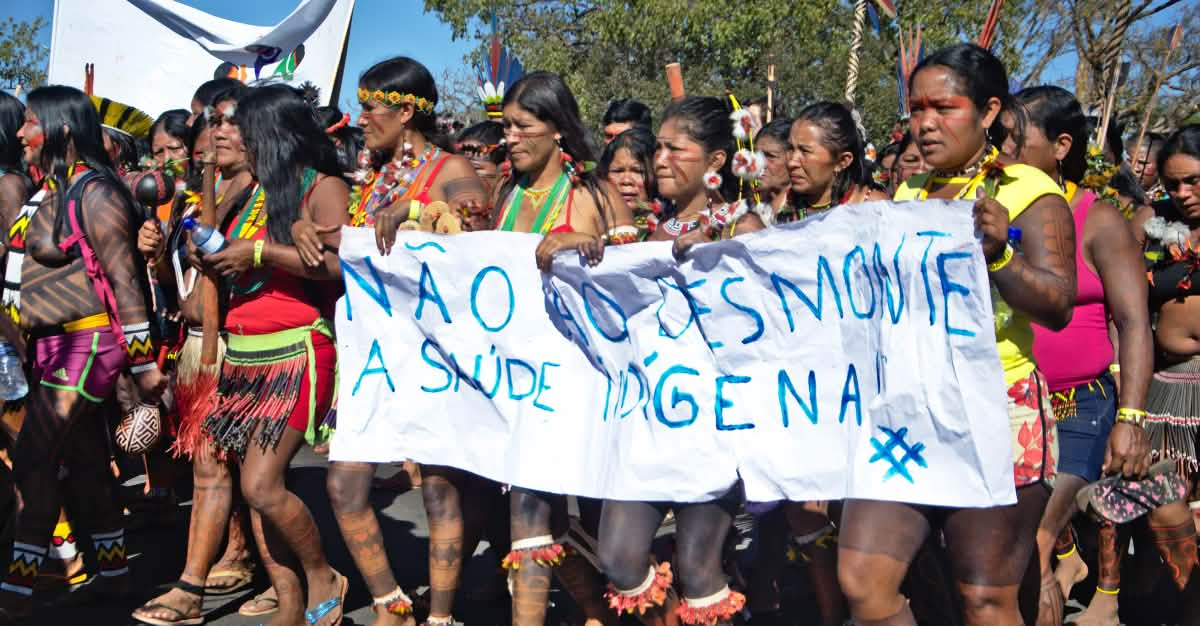Below is the 16-page report by the Brazilian organization De Olho nos Ruralistas for Rainforest Rescue in four languages (German, Portuguese, English and Spanish). Status: October 8, 2021:
Report “EU-MERCOSUR-FREE TRADE AGREEMENT – No citizen participation and rights, but clear cutting of the forests” in German: https://www.regenwald.org/files/de/Bericht-Kritik-am-EU-Mercosur-Abkommen-10-21.pdf
Report “EUROPEAN UNION-MERCOSUR FREE TRADE AGREEMENT – No Participation, Cutting Forests and Rights” in Portuguese / Brazilian: https://www.regenwald.org/files/de/Criticas-ao-Acordo-UE-Mercosul-10-21.pdf
Report “NO PARTICIPATION, NO DEAL: Grassroots organizations demand environmental safeguards in the EU-Mercosur trade agreement” https://www.regenwald.org/files/de/Critique-of-the-EU-Mercosur-Agreement-10-21.pdf
Report “EUROPEAN UNION-MERCOSUR TREATY Without participation, cutting back forests and rights”: https://www.regenwald.org/files/de/Informe-Critico-Acuerdo-UE-Mercosur-10-21.pdf
background
The free trade agreement between the European Union (EU) and the Mercosur countries (Argentina, Brazil, Paraguay and Uruguay) has been negotiated for almost 20 years. The aim of the free trade agreement is to remove trade barriers within the framework of a comprehensive association agreement. An agreement was reached at the end of June 2019 – since then we have been working on drawing up a contract that is ready to be signed.
The agreement has long been the subject of criticism – on both sides of the Atlantic: Social movements, civil society organizations and the climate justice movement criticize the fact that the agreement’s entry into force would be a setback for agriculture, human rights, environmental, climate and consumer protection.
A central goal of the EU-Mercosur Agreement is to increase imports of meat, soy and ethanol into the EU – in line with the powerful Brazilian agribusiness, which has been granted a free ticket by the government under right-wing president Jair Bolsonaro, which has been in office since January 2019 for the enforcement of his interests. In Brazil, for example, the agreement is promoting an agricultural model that relies on the cultivation of agricultural products in huge monocultures and the massive use of pesticides, thereby damaging biodiversity, the climate and people in the regions.
The increase in Brazilian agricultural exports to the EU intended with the agreement will therefore expand the production of the above-mentioned products, which are already the causes of the destruction of the Amazon rainforest, the Cerrado and the dry forests of the Chaco, which are of essential importance for the stabilization of the world climate and for have biodiversity. In addition, the agreement in Brazil is likely to lead to an increase in human rights violations, such as the displacement of small farmers and indigenous peoples from their land, which will undermine their access to land and land rights. The human rights situation in Brazil is already disastrous.
Together with partners from Brazil, we want to use this event to shed light on the role of Brazilian agribusiness and its strategies for enforcing interests, as well as listening to the voices of those who are directly affected by the rampant destruction of their territories and livelihoods that this entails.
Friday, October 8th, 21, 6 p.m. – 8 p.m.
Online event via Zoom (simultaneous interpretation German-Portuguese)
With:
Moderation: Christian Russau (FDCL)
Jeremy Oestreich (PowerShift)
Bruno Stankevicius Bassi (Keeping an eye on the ruralists / São Paulo)
Celia Xakriabá (Brazilian Articulation of Indigenous Peoples – ABIP; requested)
Denildo Gonçalves (national coordinator of Quilombola Black Rural Communities – CONAQ)
Organizers:
Save the rainforest and FDCL in co-operation with Keeping an eye on the ruralists
Publications:
Amazonia and the Bolsonaro Government: Destruction and Resistance
Extraivism and Territorial Conflicts in Brazil – German-Brazilian Relations to the Test
EU-MERCOSUR – Moving into the (climate) crisis
–


:quality(75)/cloudfront-us-east-1.images.arcpublishing.com/elcomercio/HAG43T4LVFFHLMXU3VXX6T4AKQ.jpg)